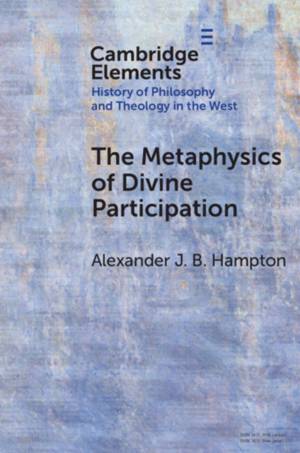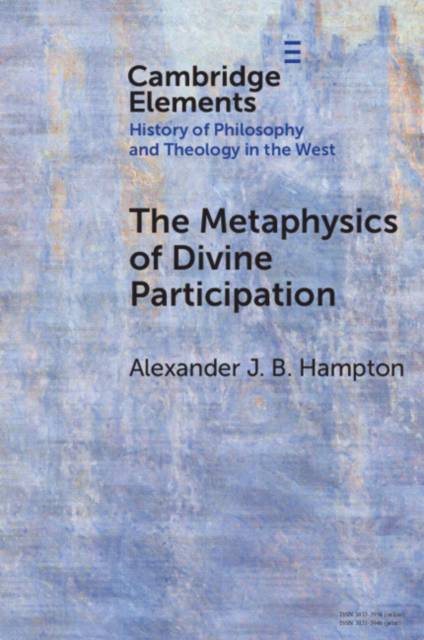
Bedankt voor het vertrouwen het afgelopen jaar! Om jou te bedanken bieden we GRATIS verzending (in België) aan op alles gedurende de hele maand januari.
- Afhalen na 1 uur in een winkel met voorraad
- In januari gratis thuislevering in België
- Ruim aanbod met 7 miljoen producten
Bedankt voor het vertrouwen het afgelopen jaar! Om jou te bedanken bieden we GRATIS verzending (in België) aan op alles gedurende de hele maand januari.
- Afhalen na 1 uur in een winkel met voorraad
- In januari gratis thuislevering in België
- Ruim aanbod met 7 miljoen producten
Zoeken
Omschrijving
Participation has been central to the story of Western philosophy and theology for at least two millennia. It has been employed to conceptualise the relationship between God and creation, between universals and particulars, and between the One and the many. This Element approaches the concept systematically to acquire an appreciation of its breadth and depth under four fundamental themes: creation and the divine ideas, incarnation and salvation, being and multiplicity, and the human activities of naming, knowing and making. In doing so it examines some of the key thinkers in the participatory tradition, including Augustine, Irenaeus, Aquinas and Nicholas of Cusa. Readers will be introduced to the key contours and manifestations of participatory metaphysics, and its role in Christianity's self-articulation. Together, these considerations will demonstrate how the metaphysics of participation has shaped the Christian tradition.
Specificaties
Betrokkenen
- Auteur(s):
- Uitgeverij:
Inhoud
- Aantal bladzijden:
- 74
- Taal:
- Engels
- Reeks:
Eigenschappen
- Productcode (EAN):
- 9781009625081
- Verschijningsdatum:
- 22/05/2025
- Uitvoering:
- Paperback
- Formaat:
- Trade paperback (VS)
- Afmetingen:
- 152 mm x 229 mm
- Gewicht:
- 113 g

Alleen bij Standaard Boekhandel
+ 89 punten op je klantenkaart van Standaard Boekhandel
Beoordelingen
We publiceren alleen reviews die voldoen aan de voorwaarden voor reviews. Bekijk onze voorwaarden voor reviews.









